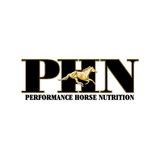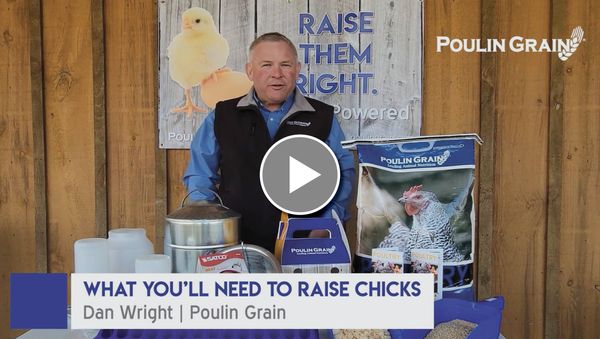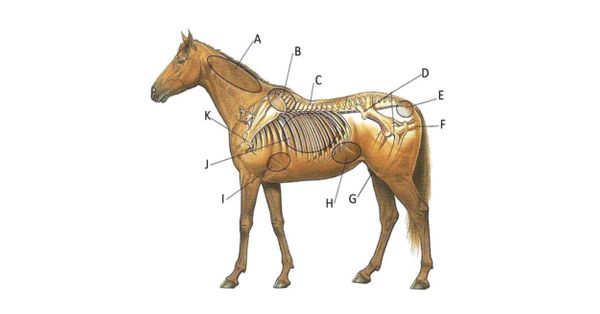Omega 3 & 6 Fatty Acids for Horses

Advertisements for both human and animal health focus on the use of Omega-3 supplements, usually containing flaxseed meal, vegetable oil, or fish oil. Studies in humans have found many health benefits with supplementation of Omega-3 fatty acids in the diet. While research benefits for horses have not been as numerous, Omega-3 supplementation shows potential to provide some healthy results.
Dietary fats serve as carriers for fat-soluble vitamins A, D, E, and K, and supply the essential fatty acids (EFAs) linoleic (Omega-6) and alpha-linolenic (Omega-3) acid that cannot be synthesized by the body. While Omega-3 fatty acids control the inflammatory response in the body and have positive health benefits, Omega-6 fatty acids cause inflammatory processes and some human medical research suggests that excessive levels of Omega-6, relative to Omega-3, may increase the probability of a number of diseases. Although the exact EFA requirements for horses have not been established, they have been demonstrated as necessary for many normal bodily functions. Deficiency of EFA in humans and animals includes hair loss, skin problems, and impaired immune and reproductive function. They also synthesize hormones and transport oxygen from red blood cells to tissue, and help control inflammation. A study with Thoroughbreds reported significant correlations between high blood plasma ratios of Omega-3: Omega-6 fatty acids and good hair coat condition, and also low blood plasma ratios of Omega-3: Omega-6 fatty acids and poor hair coat condition.
Other equine research studies with Omega-3 supplementation have had mixed results. Breeding stallions supplemented with Omega-3 fatty acids have shown increased sperm concentration and motility in several studies conducted at Colorado State University. Omega-3 supplementation of pregnant mare diets using flaxseed oil and fish oil resulted in a change of the milk fatty acid composition, but there was no immunity advantage for foals (no increase in number of antibodies colostrum, milk or foal blood serum).
Pasture grasses and hay, although containing only 2% to 3% fat, have greater concentrations of Omega-3 than Omega-6 fatty acids. Cereal grains, such as corn and oats, along with sunflower and safflower seeds contain much higher levels of Omega-6 than Omega-3 fatty acids in reference to their total fat content. Rice bran, soybean and canola oils are higher in Omega-3 and lower in Omega-6 content than corn oil. And oils from sunflower, flax, and canola seeds contain the largest amount of Omega-3’s, with higher levels of Omega-3 than Omega-6 fatty acids. Flaxseed oil is the most concentrated plant source of Omega-3 fatty acids. Six times richer than most fish oils in Omega-3, flaxseed and its oil are perhaps the most widely available botanical source of Omega 3 at 55%. Flax contains approximately three times as much Omega-3 as Omega-6.
The horse needs a balance of Omega-3s and Omega-6s to function at an optimal level, but the exact amounts or ratio of Omega-3:Omega-6 is not known. Research has focused on adding more Omega-3s, which increases the dietary ratio of Omega-3: Omega-6 fatty acids in the equine diet. Studies in animals and humans have shown that high concentrations of Omega-6 fatty acids increase inflammatory processes by increasing the formation of prostaglandins. And the addition of Omega-3 fatty acids has been shown to reduce inflammatory processes by decreasing prostaglandin formation. For example, a study with reining horses found that supplementation with soybean oil compared to corn oil had reduced inflammatory response when they were exercised.
Future research in horses will certainly continue to investigate higher levels of Omega-3 supplementation. The benefits of boosting the immune system and reducing inflammatory responses would be advantageous for horses that are aged, involved in intense exercise, or affected by degenerative joint disease and laminitis.
Specialized Feeds
Poulin Grain offers some excellent high fat feed choices for your horse:
E-TEC® FIBRE-MAX is the highest fat feed available at 14%, and suitable for every life stage, including seniors. Fibre-Max is a high fat, high fiber super feed for horses that require a high calorie intake but may be sensitive to grain rich diets.
EQUI-PRO® PROMAX is a high fat pellet available to assist in weight gain requirements. It is fortified with essential vitamins and minerals to satisfy the requirements of your performance horse and contains flax seed and soy oil to provide an Omega-3 and Omega-6 balance of fatty acids.
EQUI-PRO® PERFORMAX is a scientifically formulated, high energy textured feed for the performance horse. This formula provides the protein, vitamins and minerals to meet the demands of the equine athlete. Energy sources from soy oil and beet pulp satisfy the metabolic requirements for both the anaerobic and aerobic phases of exercise.
Contact your Poulin Grain Feed Specialist to test your hay quality and build a personalized diet for your horse.
www.PoulinGrain.com | 800.334.6731






